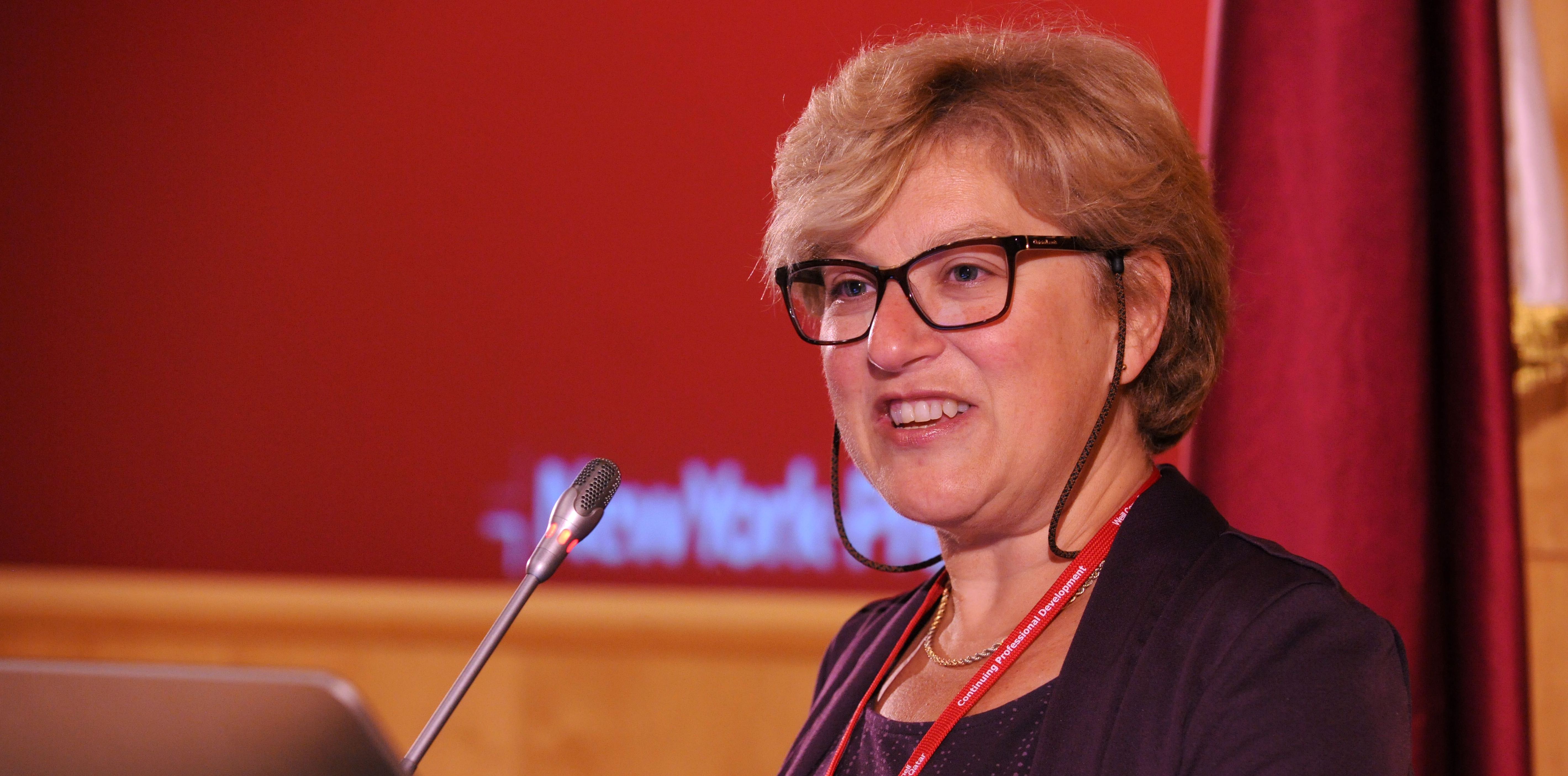WCM-Q Law & Medicine symposium discusses ethical end-of-life care
 Dr. Randi Diamond, assistant professor of medicine at Weill Cornell Medicine in New York explained palliative care at the WCM-Q Law & Medicine symposium.
Dr. Randi Diamond, assistant professor of medicine at Weill Cornell Medicine in New York explained palliative care at the WCM-Q Law & Medicine symposium.
The legal and ethical issues surrounding end-of-life care were discussed at the latest installment of WCM-Q’s series on the intersections between law and medicine.
More than 200 physicians, nurses and other healthcare professionals convened at WCM-Q to hear expert speakers from around the globe explain and explore key themes in end-of-life care. Themes included maximizing quality of life for patients in their final days, palliative care in the global context, strategies for ensuring effective communication among healthcare professionals, patients and their families, and the legal and ethical issues inherent in providing palliative care in a multi-national, -cultural, and -religious community, among others.
Dr. Randi Diamond, assistant professor of medicine at Weill Cornell Medicine in New York, said: “Palliative care focuses on providing patients with relief from the symptoms, pain and stress of having a serious illness, regardless of what the diagnosis may be. While palliative care is often for people who are nearing the end of their life, it is also beneficial for people who have a serious illness but are likely to live for an extended time. The overall aim of palliative care is to help the patient and the family achieve the best quality of life in whatever time they may have remaining. Interdisciplinary palliative care teams work side by side with a patient’s other primary care and specialist physicians.”
The symposium, entitled ‘Law and Medicine Series: Legal and Ethical Issues in End-of-Life Care’, was the sixth Law and Medicine event hosted by WCM-Q. The series provides healthcare and legal professionals with practical information about legal and ethical issues affecting provision of medical care in Qatar and the wider region. Andrea Tithecott, partner at corporate law firm Al Tamimi & Co., discussed the legal issues relating to end-of-life care, institutional liability, patients’ rights regarding refusing care and defining the legal capacity of patients and medical research subjects. Dr. Stefan Rohrig, senior consultant anesthesia & SICU-HGH at Hamad General Hospital, gave a physician’s perspective on determining the capacity of patients to make informed decisions and provided a comparative analysis of end-of-life care in different jurisdictions.
Additionally, Dr. Mohammed Ghaly, professor of Islam and biomedical ethics at the Center for Islamic Legislation and Ethics at Hamad Bin Khalifa University, spoke about the legal capacity of patients with mental disabilities, and explored legal capacity from an Islamic ethical perspective. Ms. Hiba Salem, psychologist from SANAD Home Hospice Organization of Lebanon, discussed the roles of non-profit institutions, family and society at large in improving quality of life for patients receiving palliative care.

Dr. Abdulaziz Sachedina, professor and endowed international institute for Islamic thought chair in islamic studies at George Mason University in Virginia, USA, spoke about Islamic bioethics and end-of-life care in which he examined ethical questions arising in care of people in their final days, analyzed related philosophical and religious issues, and outlined the religious and ethical deliberations related to end-of-life care in the Islamic tradition.
During his visit to Qatar, Dr. Sachedina also gave a presentation at WCM-Q’s Grand Rounds series, entitled ‘Patient Care and Islamic Ethics’. In his presentation he said: “As medical professionals we deal with human beings, complex beings, whose physical make up does not tell us everything about them. Maintaining this human entity with all its dignity is our role as scientists, as ethicists, as those who know religion, those who know humanity. All of these considerations must inform the decisions we make about caring for this patient and their loved ones.”
Both activities were accredited locally by the Qatar Council for Healthcare Practitioners-Accreditation Department (QCHP-AD) and internationally by the Accreditation Council for Continuing Medical Education (ACCME).
Dr. Sunanda Holmes, deputy chief administrative officer & associate university counsel/assistant professor of healthcare policy and research at WCM-Q, said: “We are extremely grateful to Dr. Sachedina and all of our esteemed speakers who have shown us that by approaching end-of-life care with sensitivity, honesty and humility we can help patients and their families find comfort and peace in their final days, while also respecting their cultural and religious needs, the law and ethical considerations.”